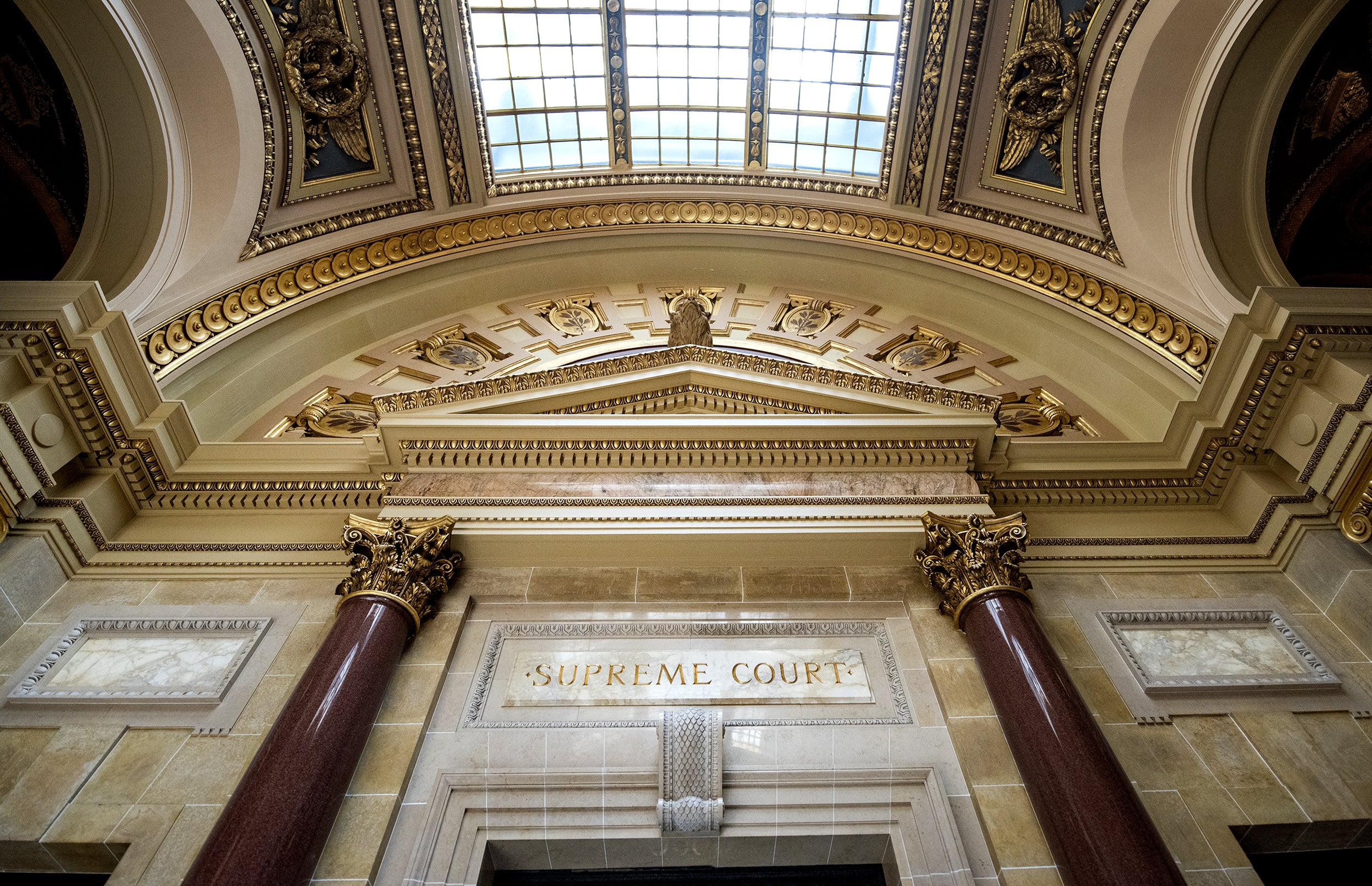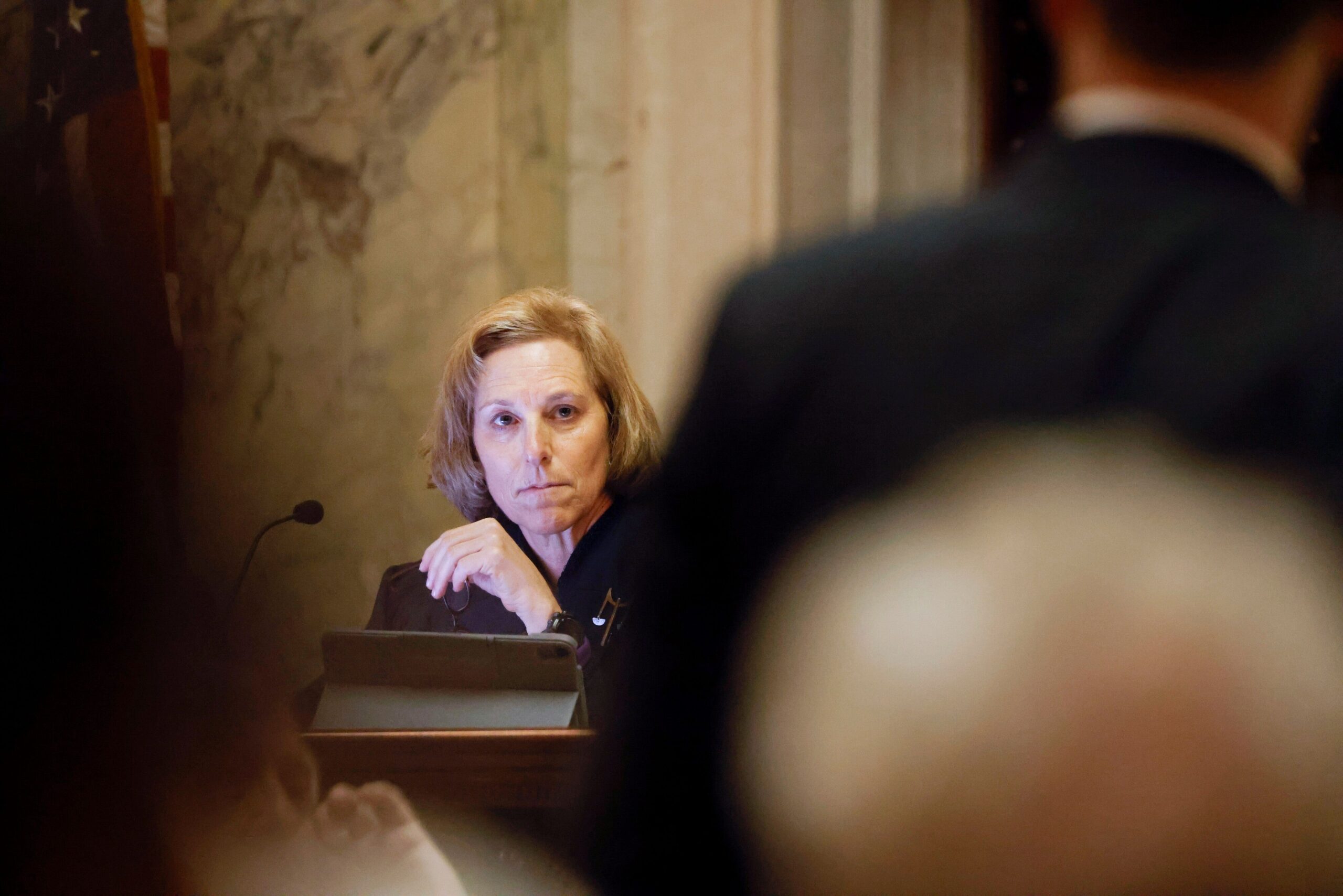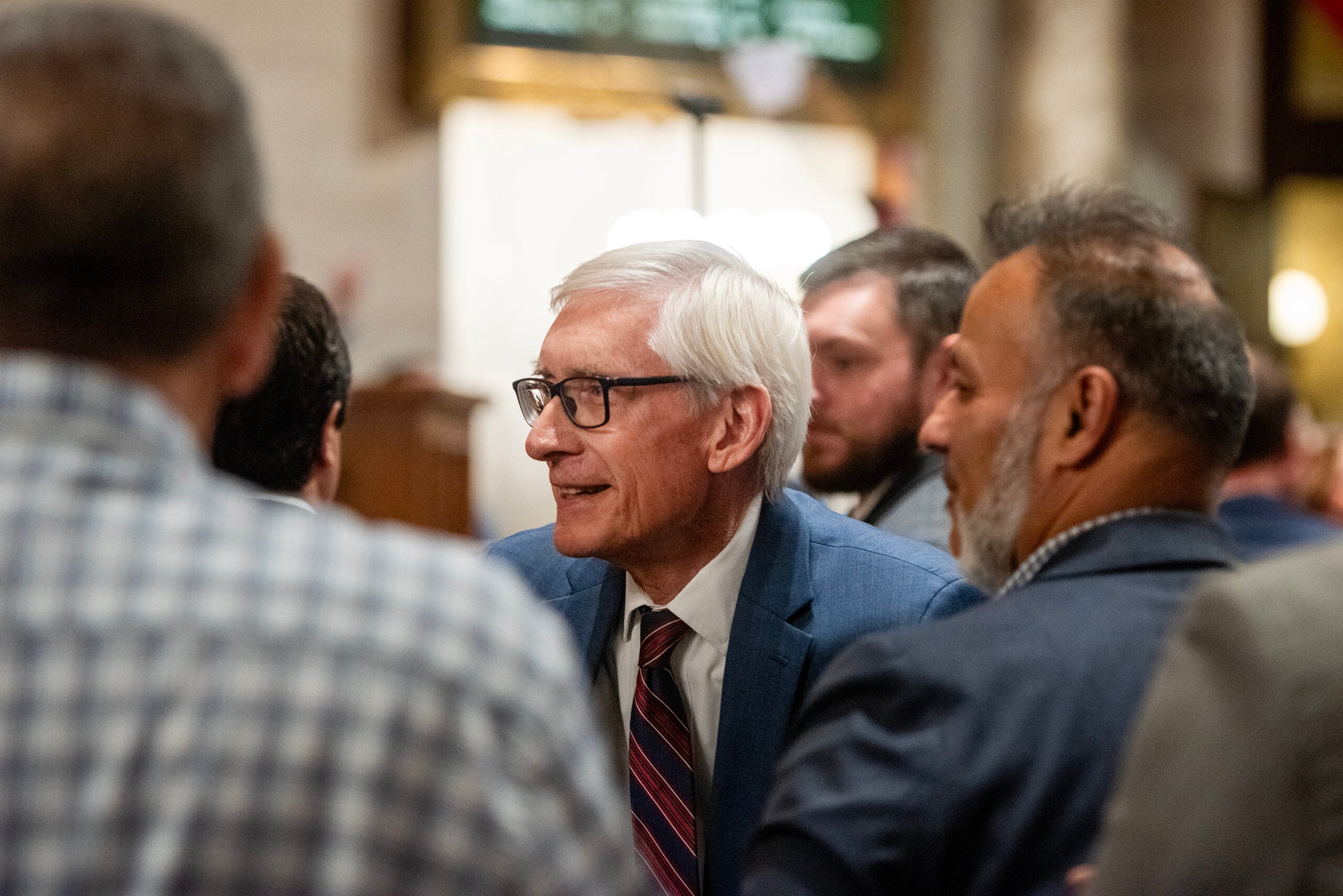A case argued before the Wisconsin Supreme Court this week could have a major impact on future operations of state government.
The court heard oral arguments Wednesday in a lawsuit challenging the Republican-controlled Legislature’s ability to block land conservation purchases in perpetuity.
Attorneys representing both Democratic Gov. Tony Evers and Republican lawmakers say the court’s ruling could have far-reaching implications for state government.
News with a little more humanity
WPR’s “Wisconsin Today” newsletter keeps you connected to the state you love without feeling overwhelmed. No paywall. No agenda. No corporate filter.
The lawsuit filed by Evers in October argues GOP-controlled committees like the budget-writing Joint Finance Committee and Joint Committee on Employee Relations are violating the Wisconsin Constitution’s separation of powers through “legislative vetoes.” The committees have used those vetoes over the last year to block the release of state funds, including shutting down Knowles-Nelson Stewardship Program purchases and and denying pay raises for state university employees that had been approved in the state budget.
The court’s liberal majority agreed to take up only the governor’s claim related to land purchases.
Assistant Attorney General Colin Roth, who is representing Evers, told justices the committee vetoes are usurping the governor’s ability to execute legislation and funding passed by the Legislature.
“Put more simply, may the legislative branch both make the law and then control its execution?” Roth asked. “Of course not.”
Roth said a ruling in the governor’s favor would have impacts well beyond the Knowles Nelson fund.
“The rules we’re adopting, I believe, will invalidate many, if not most, legislative committee vetoes that are on the books,” Roth said.
Conservative Justice Rebecca Bradley asked Roth how the Wisconsin Constitution doesn’t authorize lawmakers to delegate power to legislative committees, but does authorize the Legislature to cede power to state agencies.
“Doesn’t your argument jeopardize the entire administrative state in the state of Wisconsin?” Bradley said.
Attorney Misha Tseytlin, who is representing GOP leaders like Assembly Speaker Robin Vos, R-Rochester, and State Sen. Howard Marklein, R-Spring Green, urged justices to proceed with caution.
“They (Evers) would have this court overturn how our state government has functioned for almost a century, ever since the beginning of the modern administrative state,” Tseytlin said.
Liberal Justice Jill Karofsky responded by stating, “Maybe they’ve been wrong for the last century and we shouldn’t double down on how wrong this is.”
“The Joint Finance Committee consists of 16 people out of 132 who are in the legislature, 75 percent of those are from one party,” Karofsky said.
As it stands now, Republicans have a 12-4 majority on the JFC, which is led by GOP co-chairs. Karofsky said the committee isn’t required to offer any reasons for blocking funding proposals and she doesn’t see any limits to their power.
“I just don’t see any accountability whatsoever,” Karofsky said.
In April 2023, the JFC voted along party lines to block $4 million from the Knowles-Nelson Stewardship Program from being used to place a conservation easement on 56,000 acres of the Pelican River Forest in northern Wisconsin. Republicans claimed the Department of Natural Resources mismanaged the project by failing to properly engage local stakeholders.
Tseytlin told justices if the court takes away the JFC’s veto authority for conservation projects it objects to, the Republican-controlled Legislature will simply let the stewardship program expire in 2026 rather than “re-authorize giving the DNR a blank check to spend $30 million.” He said the Legislature would instead enact specific laws for land purchases it supports.
Conservative Justice Brian Hagedorn said “that’s kind of the point.”
“There’s going to have to be some governing, according to the process of enacting laws and executing laws,” Hagedorn said. “Isn’t that isn’t that what the Constitution envisions?”
Throughout his arguments, Tseytlin complained about the court adopting a “rushed schedule” for the case. Conservative Chief Justice Annette Zeigler agreed and asked whether it should be put on hold in order to gather more facts.
Roth said the court should act quickly because the JFC vetoes “are imposing a significant burden on the executive branch” by blocking a third of all stewardship projects over the past five years.
Editors note: WPR staff are employees of UW-Madison.
Wisconsin Public Radio, © Copyright 2026, Board of Regents of the University of Wisconsin System and Wisconsin Educational Communications Board.





